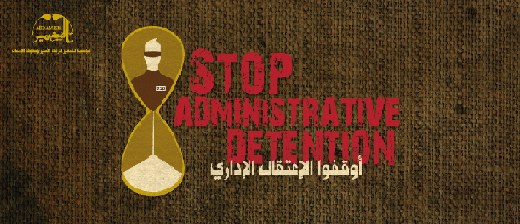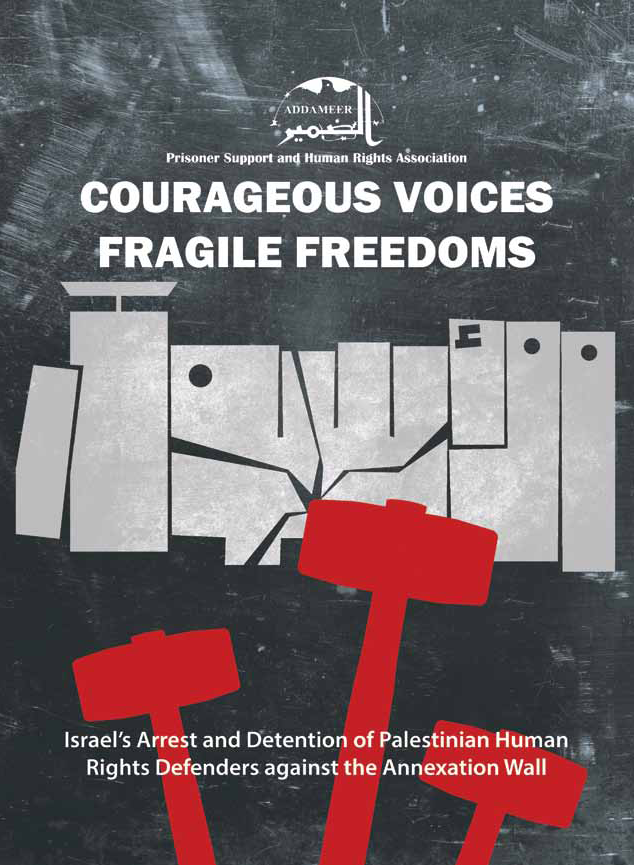Tag: Addameer
-
Mass Hunger-Strike Launched by Palestinian ‘Administrative Detainees’
24th April 2014 | Addameer Prisoner Support and Human Rights Association | Ramallah, Occupied Palestine Addameer Prisoner Support and Human Rights Association can confirm the launch of a mass open-ended hunger strike involving over 100 Palestinian political detainees. All those involved are being held under administrative detention, which is a procedure whereby detainees are held without charge…
-
Seven prisoners continue their hunger strikes despite increasing punitive measures
19th February 2014 | Addameer Prisoner Support and Human Rights Association | Ramallah, Occupied Palestine Seven Palestinian prisoners continue their individual hunger strikes as prison conditions worsen. This is the highest number of strikes since September 2013. Earlier this week, Addameer lawyer Samer Sama’an gained access to two of the three administrative detainees who started hunger strikes…
-
Addameer Releases Latest Report on the Continued Targeting of Palestinian Human Rights Activists by Israeli Forces
13th January 2014 | Addameer Prisoner Support and Human Rights Association | Ramallah, Occupied Palestine Addameer Prisoner Support and Human Rights Association are pleased to announce the publication of its latest report ‘Courageous Voices, Fragile Freedoms’. The report examines Israel’s increasing use of arrest and detention of Palestinian human rights activists taking part in protests and…



